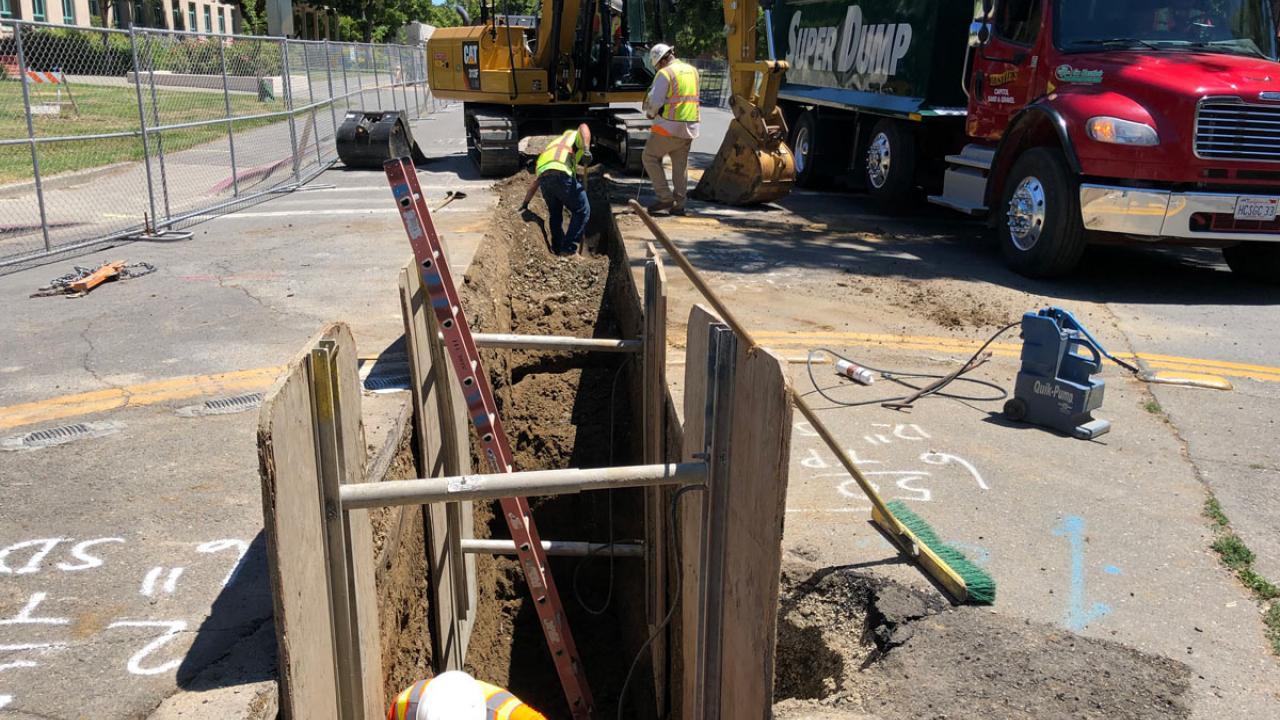Quick Summary
- $55.5 million more for move away from natural gas
- Comments sought on long-term plan
- UC Davis positioned to meet new UC-wide goal
UC Davis is making progress on its move away from fossil fuels, primarily through a multi-year project on the Davis campus to switch the central district energy plant from natural gas to electricity. Last month, Chancellor Gary S. May and the Chancellor’s Committee for Campus Planning and Design endorsed moving forward with a $55.5 million investment of campus funds for the project’s next phase. This is on top of the $56 million invested for the project’s first phase.
The project, the Big Shift, converts the central district energy plant from steam, made by burning natural gas, to hot water, heated through electric means. Not only will the change allow renewable energy sources to be used, but less energy will be needed because of the lower temperatures. Because the Big Shift will use less energy, it will also reduce utility costs over time.
Natural gas represents 95% the fossil fuel use at UC Davis, with the overwhelming majority of natural gas used at the university’s three district energy plants: two in Davis and one in Sacramento.
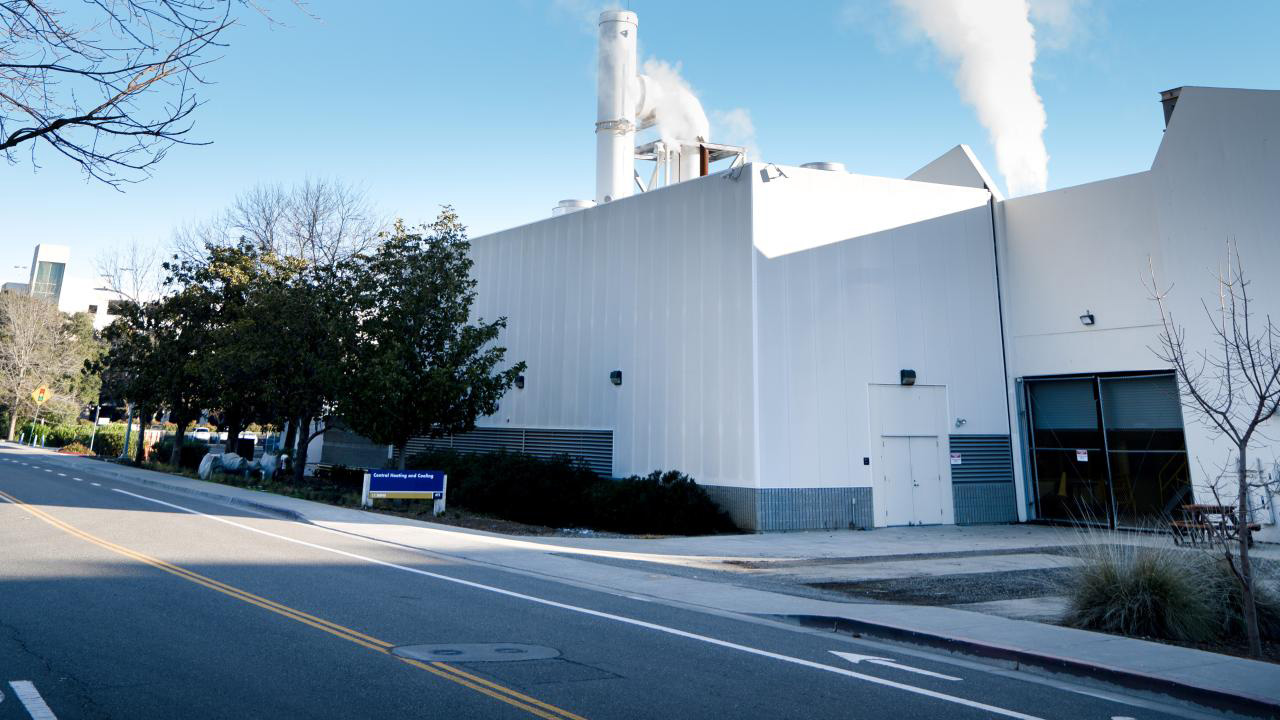

“The Big Shift is a crucial step towards reducing UC Davis’ overall carbon footprint and eliminating our reliance on fossil fuels,” said Carla Fresquez, interim director of UC Davis Sustainability. “This infrastructure overhaul reflects how UC Davis is prioritizing long-term solutions that are high impact rather than quicker fixes that are lower impact."
Four miles of new hot water pipes have already been installed since 2020 in the first phase of the project, and last month’s $55.5 million additional endorsement will fund 2 miles more — plus infrastructure updates in 22 buildings. Phase two will cover the Segundo and Regan residence halls, the Student Health and Wellness Center, the Activities and Recreation Center and the University Credit Union Center, in addition to a handful of classroom and lab buildings.
The combination of phases 1 and 2 reduces natural gas usage in the central district energy plant by a total of 10%. Most of the reductions will be realized in future phases, but phases 1 and 2 are necessary first steps. The Big Shift team is seeking additional funding sources, like grants available through the federal Inflation Reduction Act and elsewhere, to continue their plans.
The Big Shift has a projected total cost of more than $360 million.
Pathway plan: Comment by Oct. 27
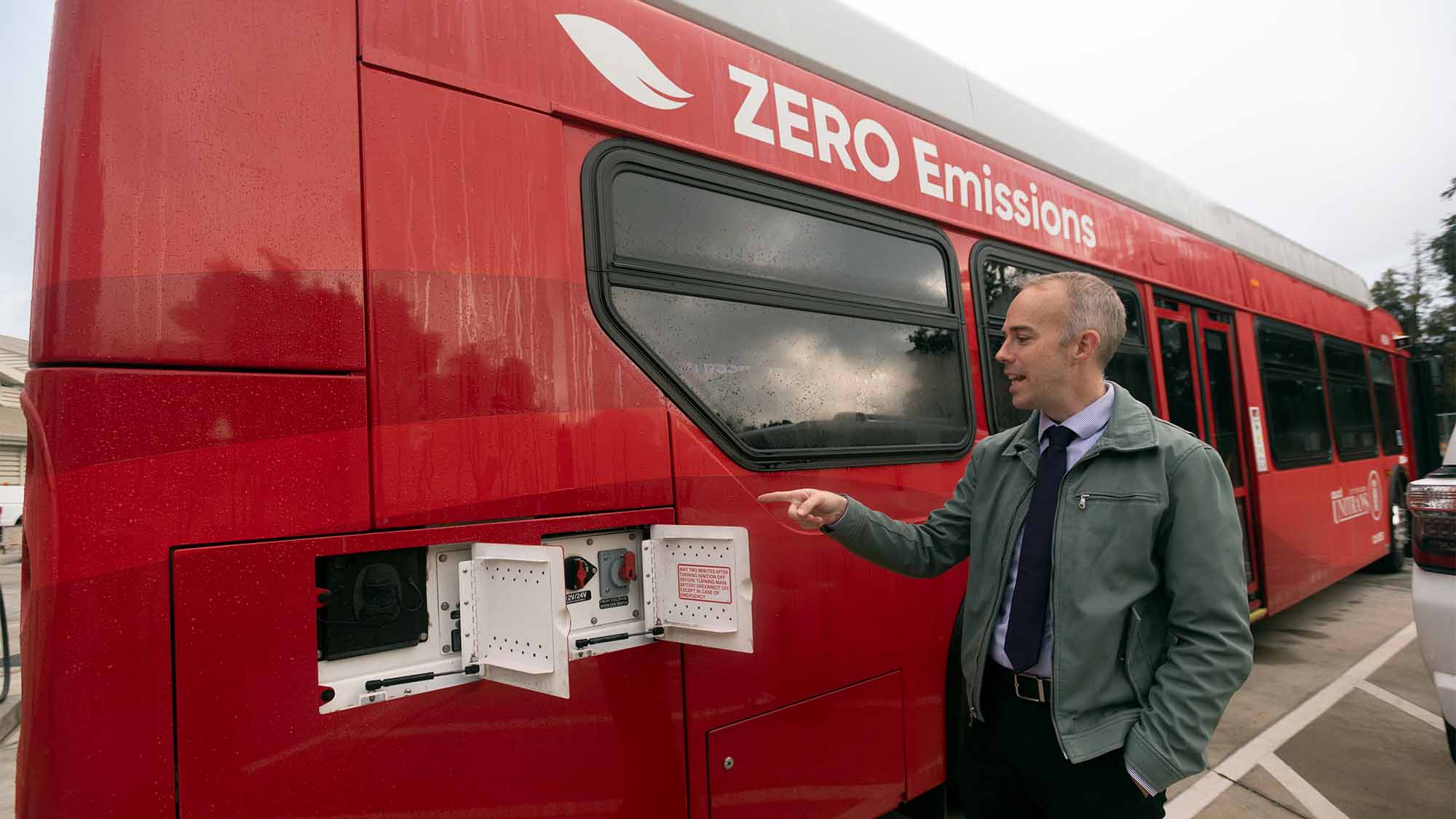
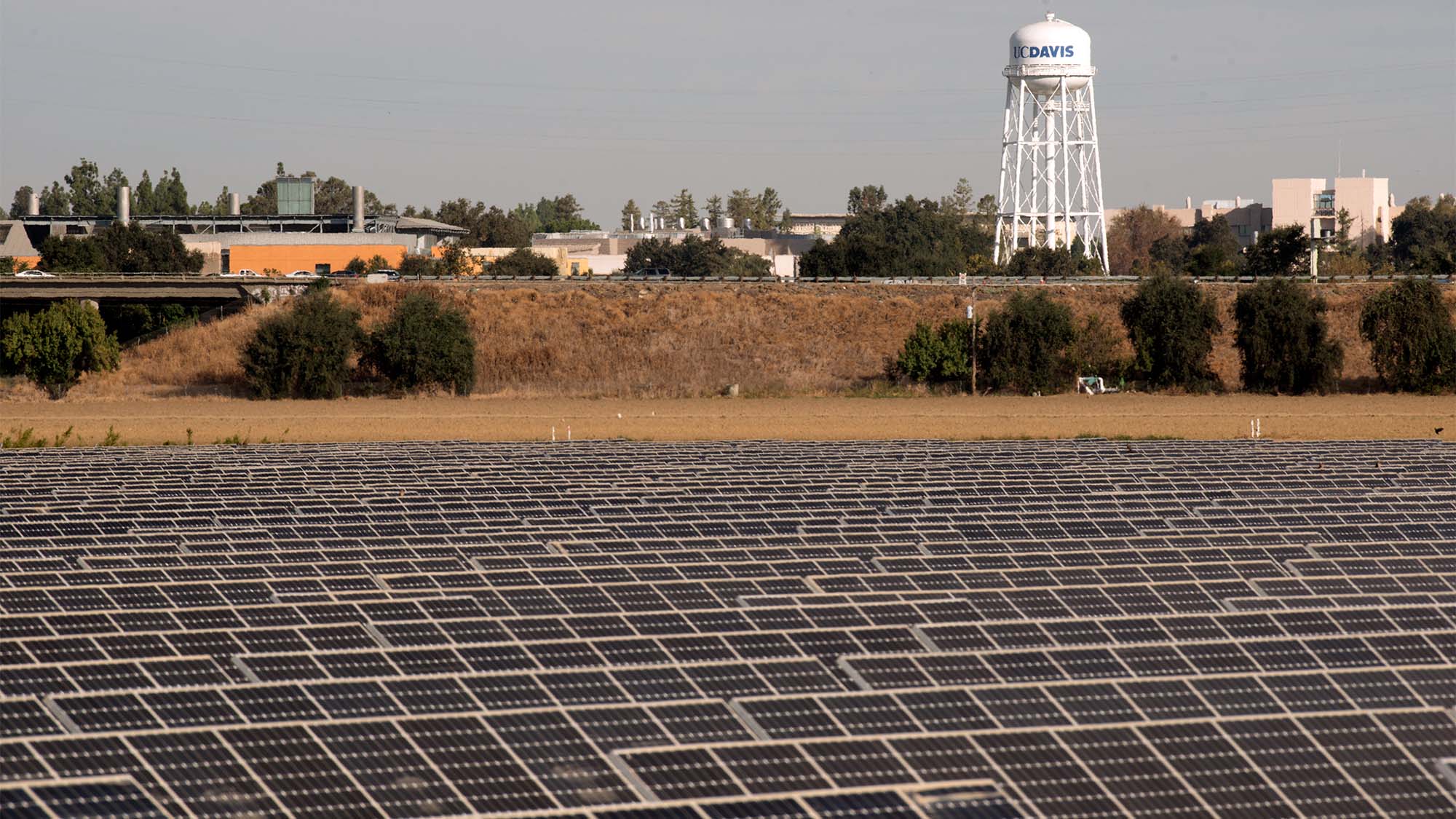
The Big Shift, which will replace a type of heating that has been in use at UC Davis since the 1930s, plays a major role in the university’s overall goals to become fossil fuel free, as spelled out in a draft pathway plan that is open for comment through Oct. 27.
The Fossil Fuel-Free Pathway Plan, or FFFPP, describes how UC Davis can use 95% fewer fossil fuels than it did in 2019 by the year 2040.
The pathway plan covers everything from the Big Shift to electrifying university-owned vehicles and replacing the gas grills and fryers in the dining commons and other eateries with electric appliances, and carries an estimated total cost of approximately $1 billion in today’s dollars.
The 121-page FFFPP is the first of its kind undertaken by a University of California campus and one of the earliest comprehensive pathway plans in the U.S. higher education sector, its authors say.
The origins of the pathway plan can be traced back to the university’s 2010 Climate Action Plan, which was followed by a decade of work. Organizers were then galvanized by a 2021 petition by the group Fossil Fuel Free UCD calling for the university to go fossil fuel-free, said Jim Carroll, university architect and associate vice chancellor for Design and Construction Management.
Once the FFFPP has accounted for public comments, the pathway plan will be published and submitted to the Chancellor for review and consideration.
Almost all of the fossil fuels currently burned by UC Davis are used to heat buildings, so district energy plants play a crucial role in the pathway plan.
“The investment in completing the Big Shift will eliminate about 80 percent of the Davis campus’s fossil natural gas usage,” the FFFPP states.
Part of UC’s overall plan
These projects position UC Davis well to meet the University of California’s new decarbonization goals: Eliminate 90% of its carbon emissions, compared to 2019 levels, by 2045. The UC goals, adopted this summer, prioritize direct reduction of greenhouse gas emissions and limit the use of carbon offsets. They also line up with California’s goals to achieve carbon neutrality, also by 2045.
Projects like the Big Shift will be a major focus.
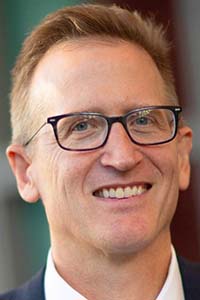
“UC has had significant success in becoming more energy-efficient and transitioning to renewable and carbon-free electricity,” said David Phillips, UC’s associate vice president for Capital Programs, Energy and Sustainability, and the former director of utilities at UC Davis. “The biggest challenge going forward is phasing out natural gas for heating, cooling and electricity generation. Under UC’s refined climate action policy, campuses will be encouraged to urgently decarbonize campus central plant operations, which are the primary source of natural gas combustion.”
The UC previously set 2025 as its target date to become carbon neutral, but would have needed to purchase $20-30 million in carbon offsets per year to reach that goal, according to an FAQ published this summer. Instead, that money will now be spent on direct action at campuses around the system.
Media Resources
Cody Kitaura is the editor of Dateline UC Davis and can be reached by email or at 530-752-1932.
